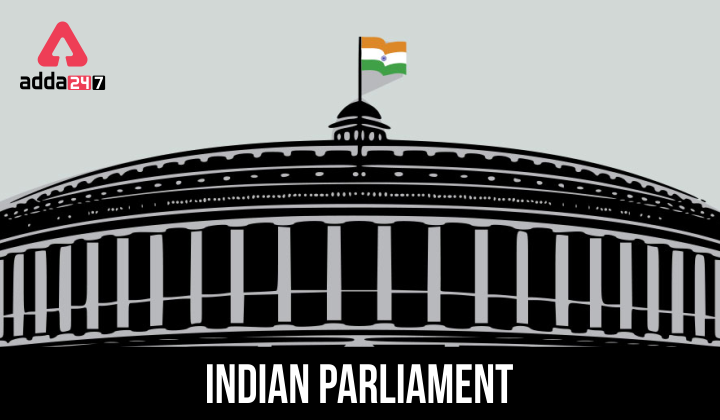What is a bill?
A bill is the draft of legislation that is yet to pass passed by the legal authorities of the Indian Parliament. If the bill is passed and the mentioned amendments are done by the legislature. Legislature is one of the main organs of government that decides the making of law and order in the state. The other two organs of the government are the judiciary the and executive which were the works on the implementation of these laws. The legislature includes making laws in the form of bills, amendment of existing laws, and changing or removing laws according to the growth and need of the society. Bills can be classified into two categories, Government Bill and Private Member’s Bill.
Buy Prime Test Series for all Banking, SSC, Insurance & other exams
Types of Bills in India.
- Ordinary Bill: These bills are concerned with any matter except the financial bills, money bills, and constitution amendment bills. These bills can be introduced in either the houses of parliament in India. These bills are passed simply by the majority. These bills can be introduced either in Lok Sabha or Rajya sabha without the recommendation of the President.
- Financial Bill: These bills contain legal provisions specified in Article 110(1) of the constitution. These bills can only be introduced in the Lok Sabha. After the bill is passed by the Lok Sabha (by simple majority), it is sent to Rajya sabha. After the bill is passed by both the houses, the bill is sent to the president for final approval and signature.
- Money Bill: These bills contain the legal provisions mentioned in article 110 of the Indian constitution and no other non-monetary matters are covered. These bills can only be introduced in Lok sabha with the recommendation of the President. Rajya sabha here doesn’t play a major role, as it can either pass the bill with a simple majority or can forward it to the president for approval and send it back to Lok sabha with a recommendation. It’s up to Lok sabha whether accepting or not to accept the recommendation.
- Constitutional Amendment Bill: These bills contain legal provisions mentioned in article 368 of the Indian constitution. These bills can be introduced in any of the houses, either Lok Sabha or Rajya sabha.
Stages of Passing a Bill in Parliament of India.
- After the bill is drafted, it passes through various stages before getting final approval by the president.
- First, the bill is introduced in both the houses of parliament in India, Lok sabha and Rajya sabha.
- A bill can be introduced either by a minister which is known as a government bill or it can be introduced by a private member which is known as a private member’s bill.
- Before the bill is introduced, it is necessary for a member-in-charge of the bill to ask for leave. If the leave is granted by the house, then only the bill is passed. This is known as the First Reading of the Bill.
- After the introduction of the bill, the presiding officer of the concerned houses can refer the bill to the concerned standing committee for examination.
- The second reading of the bill has two stages, the first stage or the committee stage, which includes a general discussion on the bill, selecting a committee to examine the bill thoroughly, and clause by clause. Without altering the principles it can amend the provisions and after all the reading it reports the Bill back to the house. The second stage or the consideration stage includes the duties of the Houses. After receiving the bill from the committee, the houses, consider the provisions in the bill clause by clause. Every clause is discussed and voted for by the majority.
- In the third step, if the majority of the members vote in favor of the provisions, the Bill is accepted. If the bill doesn’t get the required votes, it will not be accepted.
- In the fourth stage, the bill is passed to the second stage where all the three stages are again performed accordingly.
- The second house has the power to pass the bill without any additional Amendments, pass the bill with Amendments and return it to the first house, reject the bill or may not update and take any action leaving the bill in pending status.
- The final stage is approval and signature from the President. The president has the following powers, he can give his assent and the bill will become an actor, he can withhold his assent and the bill is canceled or he can return the bill for reconsideration.
FAQs related to the passing of Bill in Indian Parliament
1. How can a bill be introduced in the Indian parliament?
Ans. Bill can be introduced in the house of the Indian Parliament without the recommendation of the President of India.
2. How to pass a financial bill in India?
Ans. The financial bill must be passed by a simple majority of both the houses of the Indian Parliament, Lok sabha and Rajya sabha.
3. What is the legislative process in India?
Ans. The first step of the legislative process is the introduction of the bill in either of the houses of Parliament, Lok sabha and Rajya sabha. A bill can be introduced by either a minister or a private member.
4. How a government bill is introduced in the Lok sabha?
Ans. A government bill can only be introduced by a minister in the Lok sabha. After the approval of the bill in Lok sabha, it is moved to Rajya sabha. Lok sabha may or may not accept the amendments and after passing through both the houses, the assistance of the President is required.




 Which Country is known as the Plastic Pr...
Which Country is known as the Plastic Pr...
 ‘Boong’ Puts India on the Map with First...
‘Boong’ Puts India on the Map with First...
 Central Excise Day 2026: Why 24 February...
Central Excise Day 2026: Why 24 February...








